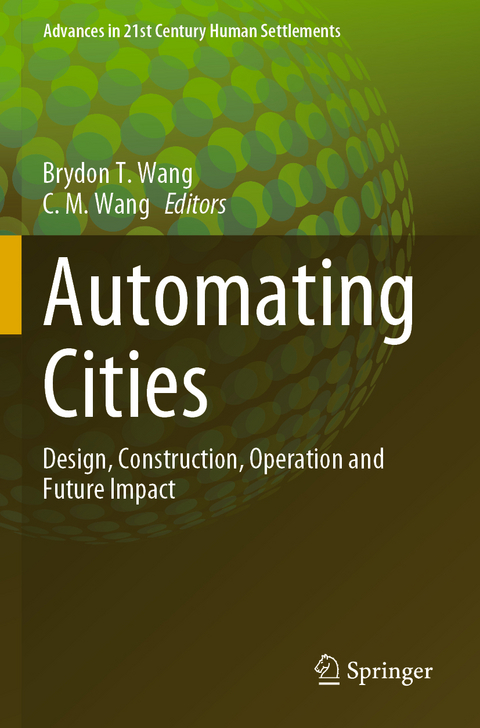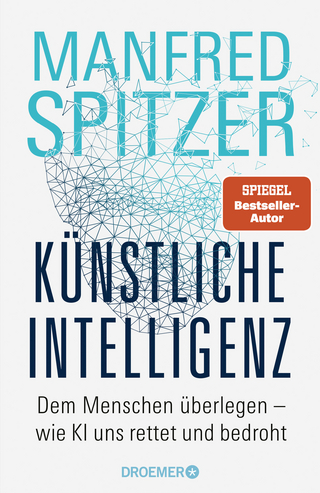
Automating Cities
Springer Verlag, Singapore
978-981-15-8672-9 (ISBN)
Brydon Wang is a technology and construction lawyer with a background in architecture. He lectures in the School of Law at the Queensland University of Technology, and in both the Master of Architecture and Master of Data Science courses at the University of Queensland. Brydon holds a Master of Laws (Juris Doctor) and a Master of Public Policy and Management from Monash University, as well as a Bachelor of Architecture with Honours from the University of Melbourne. His research interests lie in the intersection of technology, construction and law. He was a UQ Global Change Scholar, Public Transport Authority CEO Scholar and a national finalist in the 2014 Australian Law Awards and has been a Project Manager with the Infrastructure Delivery team within the State Government of Western Australia. Having worked across a number of sectors including Rail, Defence, Heritage and Education, his projects have received awards such as the Master Builders Excellence in Construction Award and theNational Sustainability Award. Prof. Wang is the TMR Chair Professor in Structural Engineering at the School of Civil Engineering, The University of Queensland, Australia. He is a Chartered Structural Engineer, a Fellow of the Australian Academy of Technology and Engineering, a Fellow of the Academy of Engineering Singapore, a Fellow of the Institution of Engineers Singapore and a Fellow of the Institution of Structural Engineers. His research interests are in the areas of structural stability, vibration, optimization and very large floating structures. He has published over 450 journal papers and 10 books in the aforementioned areas. He is the Editor‐in‐Chief of the International Journal of Structural Stability and Dynamics and an Editorial Board Member of several journals including Engineering Structures, Ocean Systems Engineering, Structures and International Journal of Applied Mechanics. His many awards include the NishinoMedal 2019, JN Reddy Medal 2019, Minister for National Development’s R&D Awards 2017, IStructE Structural Award for Sustainability 2016, Monash Civil Engineering Alumnus of the Year 2015 Award, Keith Eaton Award 2014, Lewis Kent Award 2009, the IES Prestigious Engineering Achievement Award 2013 and the US$1 million Grand Prize in the Next Generation Port Challenge.
1. The Machine Metropolis: Introduction to the Automated City.- 2. Designing Human-Machine Interactions in the Automated City: Methodologies, Considerations, Principles.- 3. Automating Kinetic Screen Design from an Origami Fold.- 4. From Factory to Site – Designing for Industrial Robots used in On-Site Construction.- 5. 3D Printing and Housing: Intellectual Property and Construction Law.- 6. Automation in structural health monitoring of transport infrastructure.- 7. Framework for Automated UAV based inspection of external building facades.- 8. Design and Automation for Prefabricated Prefinished Volumetric Construction in Tall Buildings.- 9. Automation of Land Expansion: Prefabrication of Floating Platforms for Expansion of Cities onto Adjacent Water Bodies.- 10. Automating Fab Cities: 3D Printing and Urban Renewal.
| Erscheinungsdatum | 17.01.2022 |
|---|---|
| Reihe/Serie | Advances in 21st Century Human Settlements |
| Zusatzinfo | 108 Illustrations, color; 50 Illustrations, black and white; VI, 342 p. 158 illus., 108 illus. in color. |
| Verlagsort | Singapore |
| Sprache | englisch |
| Maße | 155 x 235 mm |
| Themenwelt | Mathematik / Informatik ► Informatik ► Datenbanken |
| Informatik ► Theorie / Studium ► Künstliche Intelligenz / Robotik | |
| Naturwissenschaften ► Geowissenschaften ► Geografie / Kartografie | |
| Technik | |
| Schlagworte | 3D-Printing • 3D-Scanning • Automated city • Construction automation • floating cities • Landscape/Regional and Urban Planning • Machine logic • Machine Metropolis • Robotic construction • smart cities • Smart Grids • smart homes • smart transport • Urban automation • urban geography and urbanism |
| ISBN-10 | 981-15-8672-1 / 9811586721 |
| ISBN-13 | 978-981-15-8672-9 / 9789811586729 |
| Zustand | Neuware |
| Haben Sie eine Frage zum Produkt? |
aus dem Bereich


